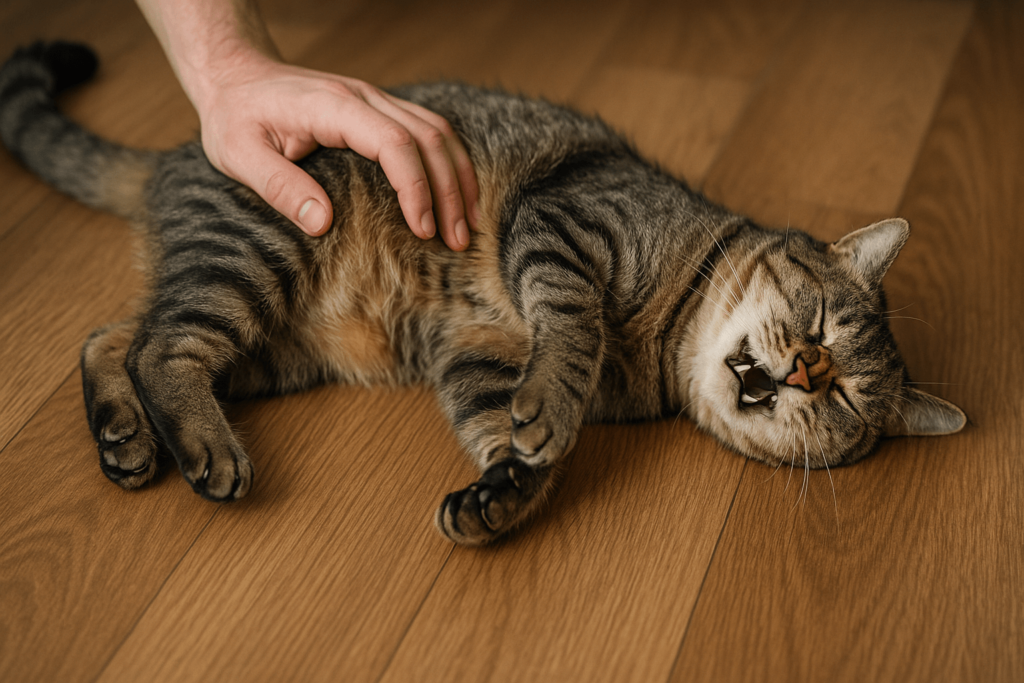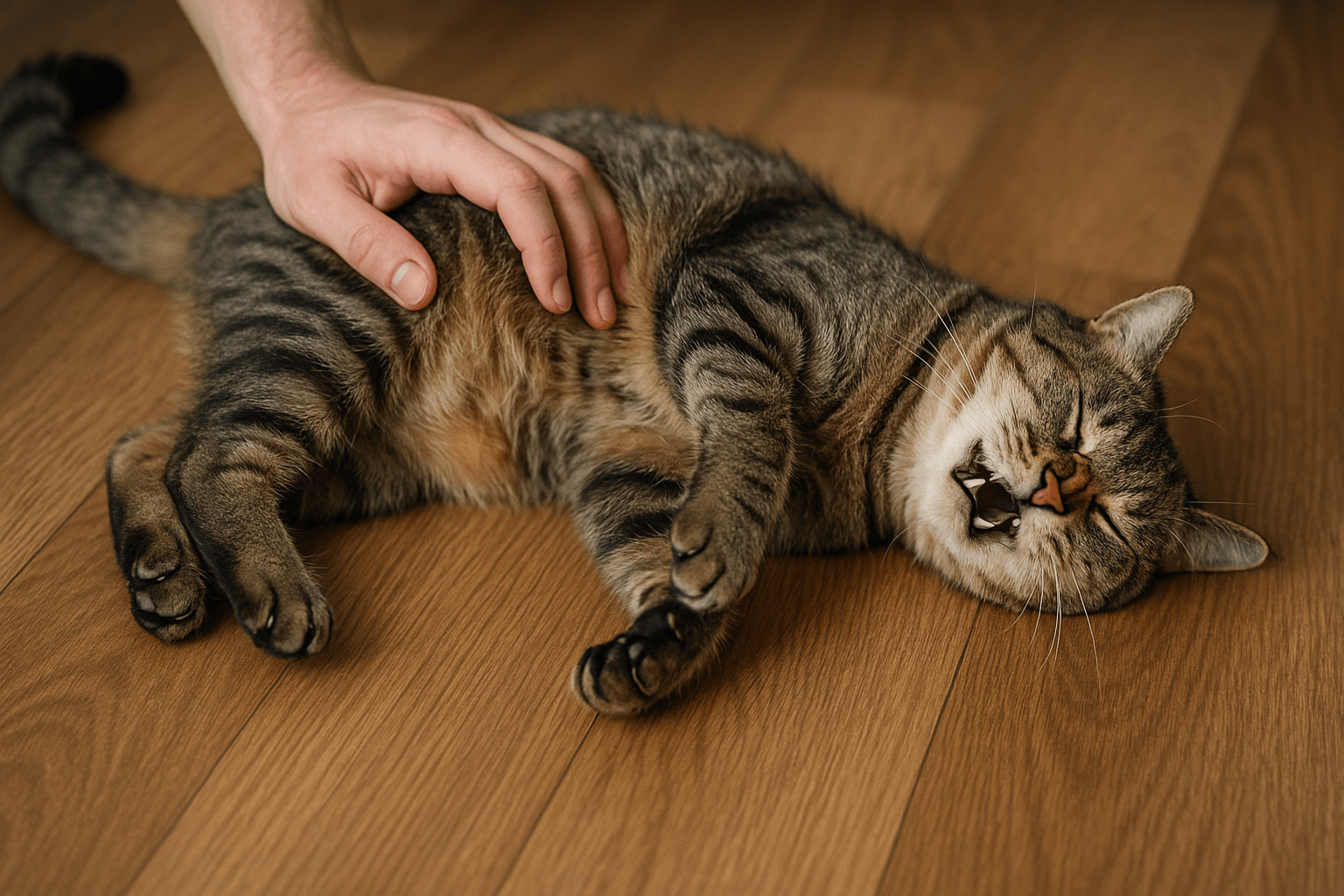Cat Seizures Causes: What You Need to Know
Witnessing your cat experience a seizure can be a frightening and confusing experience. Seizures in cats are relatively rare but can occur for a variety of reasons, ranging from underlying health conditions to environmental factors. Understanding the potential causes, recognizing the signs, and knowing how to respond can make all the difference in ensuring your feline friend receives the care they need. In this blog post, we’ll explore the most common causes of cat seizures, discuss preventive measures, and provide actionable tips to help you navigate this challenging situation with confidence.
Common Causes of Cat Seizures
Seizures in cats are often a symptom of an underlying issue rather than a standalone condition. Identifying the root cause is crucial for effective treatment and management. Below are some of the most common triggers:
Epilepsy:
Idiopathic epilepsy, though rare in cats, can cause recurrent seizures without a clear underlying cause. It’s typically diagnosed after ruling out other possibilities.Toxin Exposure:
Cats are highly sensitive to toxins like antifreeze, certain plants, or household chemicals. Ingesting these substances can lead to seizures and require immediate veterinary attention.Brain Tumors:
Growths or tumors in the brain can disrupt normal neurological function, leading to seizures. Older cats are more prone to this condition.Infections:
Bacterial, viral, or fungal infections affecting the brain, such as meningitis or feline infectious peritonitis (FIP), may trigger seizures.Metabolic Disorders:
Conditions like liver disease, kidney failure, or diabetes can cause imbalances in the body that lead to seizures if left untreated.
Understanding these potential causes allows you to work closely with your veterinarian to determine the source of your cat’s seizures and develop an appropriate treatment plan.

Signs Your Cat May Be Experiencing a Seizure
Recognizing the symptoms of a seizure is essential for timely intervention. While seizures can vary in severity, certain behaviors and physical signs are telltale indicators.
Uncontrolled Movements:
During a seizure, your cat may exhibit jerking motions, paddling of the legs, or twitching muscles.Loss of Consciousness:
Some cats may collapse or appear unresponsive during a seizure episode.Drooling or Foaming at the Mouth:
Excessive salivation or foaming is a common sign of a seizure and may indicate distress.Abnormal Vocalizations:
Cats may yowl, meow excessively, or make unusual sounds during a seizure due to confusion or discomfort.Post-Seizure Confusion:
After the seizure ends, your cat may seem disoriented, lethargic, or temporarily blind as they recover.
Being aware of these signs helps you identify a seizure quickly and seek veterinary care if necessary.
Check this guide 👉Cat Seizure Symptoms: Best 7 Expert Tips!
Check this guide 👉Understanding Cat Seizures: Best 7 Expert Tips!
Check this guide 👉Cat Scratch Fever: Best 7 Expert Tips!
Possible Causes of Cat Seizures | Preventive Measures |
|---|---|
Toxin exposure | Keep toxic substances and plants out of reach |
Brain tumors | Schedule regular vet check-ups for early detection |
Infections | Maintain up-to-date vaccinations and parasite control |
Metabolic disorders | Monitor your cat’s diet and overall health |
Head trauma | Prevent accidents and falls by cat-proofing your home |
What to Do If Your Cat Has a Seizure
If your cat experiences a seizure, staying calm and taking the right steps is critical for their safety and well-being. Here’s what you should do:
Move Objects Away:
Clear the area around your cat to prevent injury from nearby furniture or sharp objects.Avoid Restraining Them:
Do not attempt to hold your cat down or restrain their movements, as this could cause harm.Time the Seizure:
Use your phone or a clock to track how long the seizure lasts. Seizures lasting more than 5 minutes require emergency care.Comfort Afterward:
Once the seizure ends, speak softly to your cat and offer gentle reassurance as they regain awareness.Contact Your Veterinarian:
Even if the seizure seems mild, consult your vet to rule out serious underlying issues and discuss next steps.
Following these guidelines ensures your cat remains safe and receives the care they need during and after a seizure.
Diagnosing the Cause of Cat Seizures
Determining the exact cause of your cat’s seizures requires a thorough diagnostic process. Veterinarians use various tools and tests to pinpoint the underlying issue.
Physical Examination:
A comprehensive physical exam helps identify visible signs of illness or injury that could contribute to seizures.Blood Tests:
Blood work can reveal metabolic imbalances, infections, or organ dysfunction that may be triggering seizures.Imaging Studies:
X-rays, MRIs, or CT scans are used to detect structural abnormalities in the brain, such as tumors or inflammation.Cerebrospinal Fluid Analysis:
In some cases, analyzing spinal fluid provides insights into infections or inflammatory conditions affecting the brain.Electroencephalogram (EEG):
An EEG measures electrical activity in the brain and can help diagnose epilepsy or other neurological disorders.
These diagnostic methods enable veterinarians to create a tailored treatment plan based on your cat’s specific needs.
Managing Stress to Reduce Seizure Risk
Stress can exacerbate seizure activity in cats, making it essential to create a calm and supportive environment. These strategies can help minimize stress and promote relaxation:
Provide Safe Spaces:
Offer cozy hiding spots where your cat can retreat when feeling overwhelmed.Maintain a Routine:
Cats thrive on consistency, so stick to regular feeding, play, and sleep schedules.Limit Loud Noises:
Avoid sudden loud noises or chaotic environments that might startle your cat.Use Calming Products:
Feline pheromone diffusers or calming sprays can soothe anxious cats.Spend Quality Time Together:
Regular interaction and affection strengthen your bond and reassure your cat.
Reducing stress not only improves your cat’s quality of life but also lowers the risk of seizure episodes.
Dietary Considerations for Cats Prone to Seizures
A balanced diet plays a vital role in managing your cat’s overall health and reducing seizure risks. These dietary tips can support neurological well-being:
Choose High-Quality Food:
Opt for premium cat food free of artificial additives and fillers that may harm your cat’s health.Ensure Proper Hydration:
Dehydration can worsen certain conditions, so encourage your cat to drink plenty of water.Supplement Wisely:
Consult your vet about supplements like omega-3 fatty acids, which may benefit brain health.Avoid Toxic Ingredients:
Steer clear of foods containing garlic, onions, or xylitol, which are toxic to cats.Monitor Portion Sizes:
Overfeeding can lead to obesity, which may exacerbate health issues linked to seizures.
By prioritizing nutrition, you can help keep your cat’s body and mind in optimal condition.
Long-Term Care for Cats with Chronic Seizures
For cats experiencing chronic seizures, ongoing care and management are essential to maintaining their quality of life. These tips can guide you through long-term care:
Administer Medication Consistently:
Follow your vet’s instructions carefully when giving prescribed medications to manage seizures.Track Seizure Patterns:
Keep a journal noting the frequency, duration, and triggers of seizures to share with your vet.Schedule Regular Check-Ups:
Frequent veterinary visits allow for adjustments to treatment plans and monitoring of your cat’s progress.Create a Support System:
Reach out to online communities or local groups for advice and emotional support from other cat owners.Stay Proactive About Health:
Address minor health issues promptly to prevent them from escalating into major problems.
With dedication and compassion, you can provide the stability and care your cat needs to thrive despite chronic seizures.
Frequently Asked Questions About Cat Seizures
Are seizures painful for cats?
While seizures themselves are not typically painful, they can be disorienting and stressful for your cat.
Can stress trigger seizures in cats?
Yes, extreme stress or anxiety may lower the threshold for seizures in predisposed cats.
How long do cat seizures usually last?
Most seizures last between a few seconds to a few minutes. Prolonged seizures (status epilepticus) require immediate medical attention.
Can diet affect my cat’s seizure risk?
Certain diets, especially those high in toxins or lacking essential nutrients, may increase the likelihood of seizures.
Is there a cure for cat seizures?
Treatment depends on the underlying cause. Some conditions can be managed effectively, while others may require lifelong care.
Supporting Your Cat Through Seizures
Seizures in cats can be alarming, but understanding their causes and knowing how to respond empowers you to provide the best possible care. By staying vigilant, working closely with your veterinarian, and implementing preventive measures, you can minimize risks and ensure your cat lives a happy, healthy life. Remember, your love and dedication are key to helping your feline companion overcome challenges and thrive despite any obstacles they may face.
Can I Give My Cat Midol? Best 7 Expert Tips! – Learn the risks, symptoms, and safe alternatives to keep your cat healthy and avoid toxic reactions.
Can I Give My Dog Midol? Best 7 Expert Tips! – Discover the risks, safe alternatives, and expert advice to keep your dog safe from accidental poisoning.
Maximum Weight for Cats on Planes: Best 7 Expert Tips! – Learn airline policies, tips to stay compliant, and ensure safe travels for your feline friend.
Max Weight for Dogs on Planes: Best 7 Expert Tips! – Discover airline weight limits, safe travel tips, and solutions for flying with your dog stress-free.





